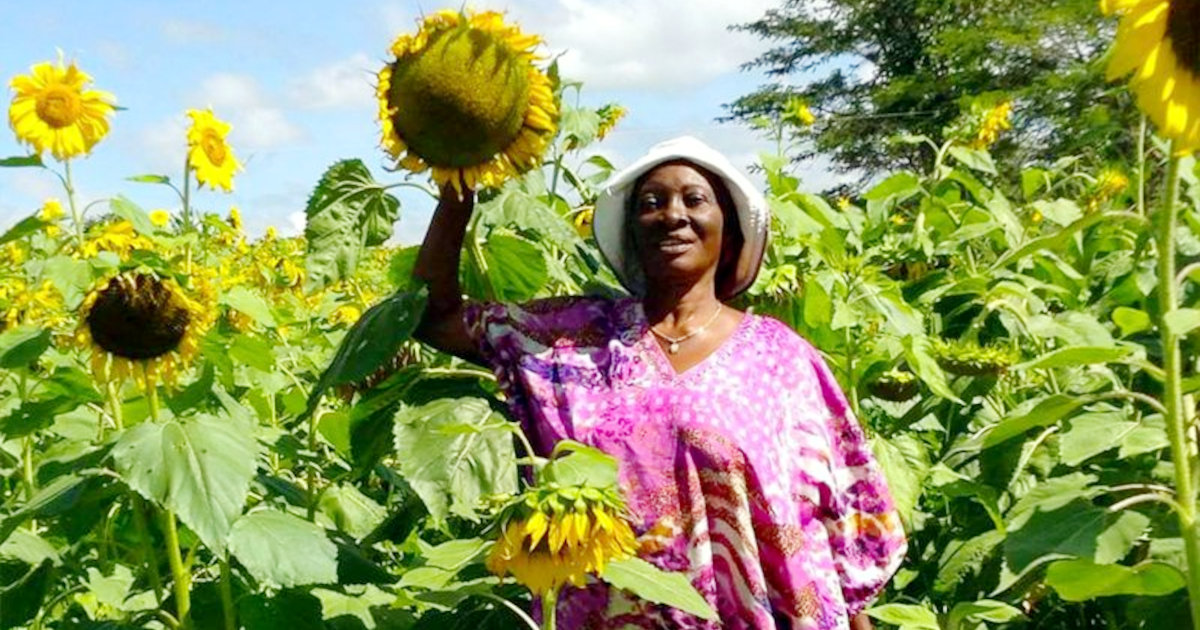Sunflower farming in Zambia has emerged as a profitable venture today, offering farmers a promising opportunity for economic growth. In this comprehensive guide, we will delve into various aspects of sunflower cultivation in Zambia, addressing key questions regarding profitability, market prices, yields, buyers, and cultivation practices.
Is Sunflower Farming Profitable in Zambia?
Sunflower farming holds considerable promise for profitability in Zambia. With a conducive climate and growing demand for sunflower oil domestically and internationally, farmers stand to gain significant returns on their investment. The profitability of sunflower farming largely depends on factors such as proper land preparation, efficient cultivation practices, access to quality seeds, effective pest and disease management, and access to reliable markets.
Market Prices for Sunflower in Zambia
As of recent data, the price of a 50kg bag of sunflower in Zambia typically ranges between X and Y Zambian Kwacha (ZMW). Additionally, the price per kilogram of sunflower varies depending on factors such as quality, market demand, and seasonality. Farmers are advised to stay updated on market trends and engage with local buyers to negotiate favorable prices for their produce.
Sunflower Yield per Hectare in Zambia
Sunflower yield per hectare in Zambia can vary based on several factors, including soil fertility, climate conditions, cultivation practices, and the variety of sunflower grown. On average, farmers can expect to achieve yields ranging from Z to W metric tons per hectare. However, adopting improved farming techniques, utilizing quality seeds, and implementing proper crop management strategies can help optimize yields and maximize profitability.
Who Buys Sunflower in Zambia?
In Zambia, various entities are involved in the purchase of sunflower, including agro-processing companies, oil extraction plants, local markets, and exporters. These buyers procure sunflower for various purposes, including oil extraction, seed processing, and retail distribution. Farmers can explore different marketing channels to sell their sunflower produce, including direct sales to buyers, cooperatives, or engaging with agricultural extension services for market linkages.
Sunflower Growing Guide in Zambia
For successful sunflower cultivation in Zambia, farmers should follow a systematic approach and adhere to best practices. Here’s a concise guide:
- Land Preparation: Begin by preparing the land thoroughly, ensuring it is well-drained and free from weeds and debris.
- Seed Selection: Choose high-quality sunflower seeds suited to local growing conditions and desired traits such as disease resistance and high yield potential.
- Planting: Plant sunflower seeds at the recommended spacing and depth, typically 2-3 centimeters deep and 30-45 centimeters apart in rows.
- Fertilization: Apply fertilizers based on soil test results and crop nutrient requirements to ensure optimal growth and yield.
- Irrigation: Provide adequate water during the critical growth stages, especially during flowering and seed development.
- Weed Control: Implement effective weed management strategies, including manual weeding and the use of herbicides, to minimize competition and maximize sunflower yield.
- Pest and Disease Management: Monitor for common pests and diseases such as aphids, caterpillars, and rust, and apply appropriate control measures as needed.
- Harvesting: Harvest sunflower when the heads turn brown and the back of the head is yellow, typically 30-45 days after flowering.
- Post-Harvest Handling: Dry harvested sunflower seeds properly to reduce moisture content and prevent mold growth before storage or sale.
Milika Sunflower Seed: A Preferred Choice
Milika sunflower seed is renowned for its superior quality and high yield potential, making it a preferred choice among Zambian farmers. With traits such as early maturity, disease resistance, and excellent oil content, Milika seeds have become synonymous with success in sunflower farming ventures across the country.
In conclusion, sunflower farming presents a lucrative opportunity for farmers in Zambia, offering the potential for significant profits and economic advancement. By adopting modern agricultural practices, utilizing quality seeds, and leveraging market opportunities, farmers can maximize yields and capitalize on the growing demand for sunflower products both domestically and internationally.

Am really blessed with your information on agriculture and am looking forward to learn more.
I really appreciate the information in how to grow sunflower. Thank you
Thank you for information provided on how to grow sunflower.
This very educative and an eye opener.
kindly atleast give a range of estimated yield per hector.
Is it possible to get more tones from your production of sunflower. cal me on this contact +244943463811